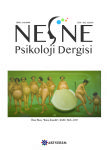Zamir Kullanımının Erkek ve Kadınlarda Bireycilik ve Toplulukçuluğa Etkisi
Sex Differences in the Effect of Pronoun Type on Self-Construal
Author(s): Sinan Alper, Ecem Kunter, İrem UzSubject(s): Gender Studies, Psycholinguistics, Social psychology and group interaction, Neuropsychology, Personality Psychology
Published by: Sanat ve Dil Araştırmaları Enstitüsü
Keywords: gender; independence-interdependence; language; pronoun; self-construal;
Summary/Abstract: Past studies showed that self-construal could be manipulated by the differences in language use; for example, the use of first-person singular pronouns in a sentence prime independent self-construal whereas first person plural pronouns prime interdependent self-construal. In addition, it has been demonstrated that women are more sensitive to such manipulations. In the current study, self-construal was manipulated by the use of “I” or “we” pronouns and it was investigated whether Turkish women are also more sensitive to such manipulations in pronoun types. The sample consisted of 155 university students. Participants were asked to state how much they agree with statements including either “I” or “we” as a personal pronoun. The results showed that, in general, women were more interdependent as compared to men, but there was no sex difference with regard to independence. Pronoun type alone did not influence self-construal, but it interacted with sex in predicting interdependent self-construal. Accordingly, the use of “we” as a pronoun increased interdependence only among women. The current study contributed to Turkish psychological literature by demonstrating that self-construal can be primed by manipulating pronoun types and women are more susceptible to such manipulations. Implications for future research were discussed.
Journal: Nesne-Psikoloji Dergisi
- Issue Year: 6/2018
- Issue No: 12
- Page Range: 68-81
- Page Count: 14
- Language: Turkish

